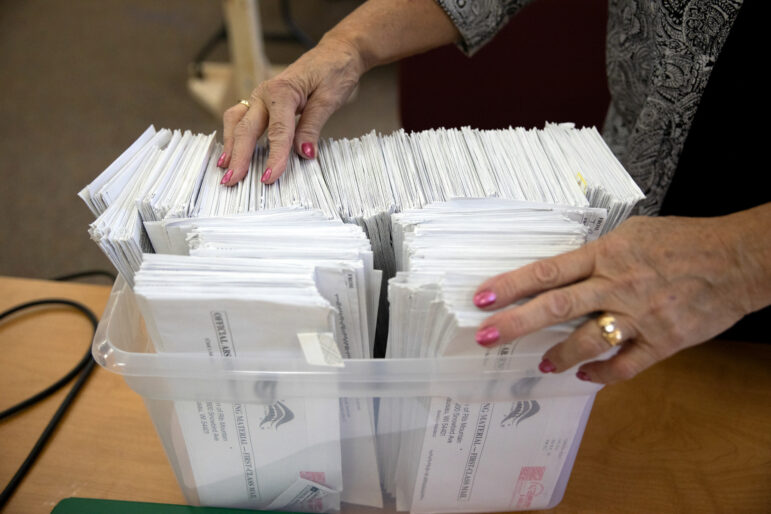Rights Clash in Records Dispute
Battle over voting by those deemed mentally incompetent is complicated.
The Wisconsin Supreme Court will soon hear a case involving records related to the voting rights of mentally incompetent people. No matter which side wins, the public has in some ways already lost. That’s because while the case pits the public’s right to scrutinize voter eligibility against the rights of voters to protect their own private health information, elected officials have missed a chance to solve the underlying problem.
State law specifies that court records dealing with mental competency are not public records unless a court decides otherwise. It’s one of the limited exceptions to the state’s open records law, which holds that most public records kept by state and local governments are public information.
Lacking clear guidance in law, the courts have developed a system by which a form is sent to the Wisconsin Elections Commission. The commission updates its voter records and then alerts a local election clerk to remove the person from the voter rolls. It’s public access to that form that is being disputed in the case now before the state Supreme Court.
What it did find were a few examples of nursing home residents casting absentee ballots despite their families saying they were incompetent. However, in most cases, Gableman presented no evidence that a court removed their voting rights.
After the Gableman investigation fizzled, Heuer continued investigating the issue and filed lawsuits in 13 counties seeking records related to those deemed incompetent.
Heuer lost at the circuit court level and appealed in two separate appellate districts. He lost before the District 4 court based in liberal Madison. But then, in an unusual twist, the District 2 court based in conservative Waukesha County ruled in his favor. Wisconsin appellate courts aren’t supposed to contradict each other. And so the Wisconsin Supreme Court agreed to hear the case.
Heuer wants access to the records because he claims there could be as many as 20,000 adjudicated incompetent people still casting illegal ballots. That’s incorrect. A Wisconsin Watch investigation found that’s an artificially inflated figure based on everyone under a court-ordered guardianship, not everyone who has lost their right to vote.
But the number is not zero. At Wisconsin Watch’s request, Dane County Clerk Scott McDonell reviewed the voting record of adjudicated incompetent people in Dane County. He found 95 examples of people who combined had cast more than 300 ballots since 2008. The Wisconsin Elections Commission checked its files and advised clerks to review their records.
McDonell, a Democrat, and the Wisconsin County Clerks Association advocated for a change in law that would make the law clearer on how the sensitive court records should be communicated to election clerks. Assembly Campaign and Elections Committee chair Rep. Scott Krug, R-Nekoosa, moved a fix through his committee and it passed with bipartisan support.
Wisconsin needs to find a way to make these records available without compromising the medical privacy of individual voters, and then get to work passing bipartisan fixes to obvious problems. A functional government requires both an informed public and elected leaders responsive to problems identified by the public.
Your Right to Know is a monthly column distributed by the Wisconsin Freedom of Information Council (wisfoic.org), a nonprofit, nonpartisan group dedicated to open government. Matthew DeFour is the statehouse bureau chief for Wisconsin Watch, where this piece was originally published.
If you think stories like this are important, become a member of Urban Milwaukee and help support real, independent journalism. Plus you get some cool added benefits.
Your Right to Know
-
Don’t Let Government Charge For Open Records Redactions
 Feb 1st, 2024 by Amanda St. Hilaire
Feb 1st, 2024 by Amanda St. Hilaire
-
Limit Privacy Protections for Police
 Jan 2nd, 2024 by Jacob Resneck
Jan 2nd, 2024 by Jacob Resneck
-
Protect the Rights of Student Journalists
 Dec 5th, 2023 by Larry Gallup
Dec 5th, 2023 by Larry Gallup





















